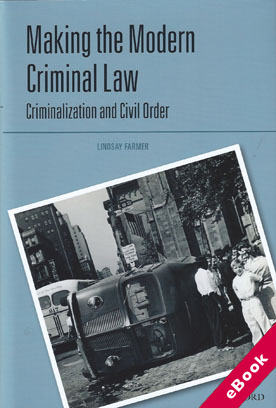
The device(s) you use to access the eBook content must be authorized with an Adobe ID before you download the product otherwise it will fail to register correctly.
For further information see https://www.wildy.com/ebook-formats
Once the order is confirmed an automated e-mail will be sent to you to allow you to download the eBook.
All eBooks are supplied firm sale and cannot be returned. If you believe there is a fault with your eBook then contact us on ebooks@wildy.com and we will help in resolving the issue. This does not affect your statutory rights.
The Criminalization series arose from an interdisciplinary investigation into criminalization, focussing on the principles that might guide decisions about what kinds of conduct should be criminalized, and the forms that criminalization should take.
Developing a normative theory of criminalization, the series tackles the key questions at the heart of the issue: what principles and goals should guide legislators in deciding what to criminalize? How should criminal wrongs be classified and differentiated? How should law enforcement officials apply the law's specifications of offences?
The fifth book in the series offers an historical and conceptual account of the criminal law, as it has developed in England and spread to common law jurisdictions around the world. It traces how and why criminal law has come to be accorded with a central role in securing civil order in modernity, and justifies who and what should be treated as criminal under the law. Farmer argues that the emergence of the modern state in which criminal law is recognized as an instrument of government is a result of the distinct body of rules which have emerged from the modern criminal law.
Structured in two parts, the first traces the development of the modern criminal law, including jurisdiction, codification, and responsibility. The second part engages in a detailed analysis of the development of specific categories of criminal law, focusing on patterns of criminalization in relation to property offences, offences against the person, sexual offences, and civility.